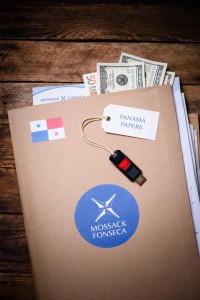Spanish taxes: Panama papers and the “Modelo 720”
Following the publication of what appears to be a massive 11.5 million leaked documents from a Panama law firm, Mossack Fonseca, this small Central American territory will no longer be remembered for its Canal or the country that the U.S. invaded in 1989.
Fonseca, this small Central American territory will no longer be remembered for its Canal or the country that the U.S. invaded in 1989.
It must be said, for the record, that in most modern jurisdictions it is not illegal to either have an offshore bank account, an offshore company or both. What is against the law is to be a resident of a [tax-wise] ‘normal’ country and have money, interests, shares or any other valuables hidden from the country where one pays taxes regularly; in an offshore jurisdiction or under the mattress.
Only in Spain, according to the 2015 Tax Control Plan by the AEAT (Spanish Tax Office), 7,000 taxpayers are already in the investigation stage on whom the Tax Agency has indications that either they had to present form 720 and did not do so or they did not declare their foreign assets correctly. With the Panama Papers scandal, this number will certainly double.
As far as Spain is concerned, it is interesting to note that offshore companies do provide a very significant degree of anonymity. In fact, offenders have generally been caught by tip-offs, police raids on law firms on occasion of fraud investigations or massive document leaks -such as the Panama Papers-. Unfortunately for many those caught, tax evasion came tied in with money laundering since these are connected crimes.
Offshore fans or nostalgics of appealing names such as Belize, Cayman or Seychelles need to once and for all accept that fiscal or planning has nothing to do with fictitious residencies and other forms of concealment.
One can have millions stashed away via a Turks and Caicos company, a boat in the name of a Madeira-registered entity and the villa via a Gibraltar offshore vehicle, provided they are properly declared in the country of residency. And there is no tailored or ‘bespoke’ tax advice or planning that will substitute this obligation.






Leave a Reply